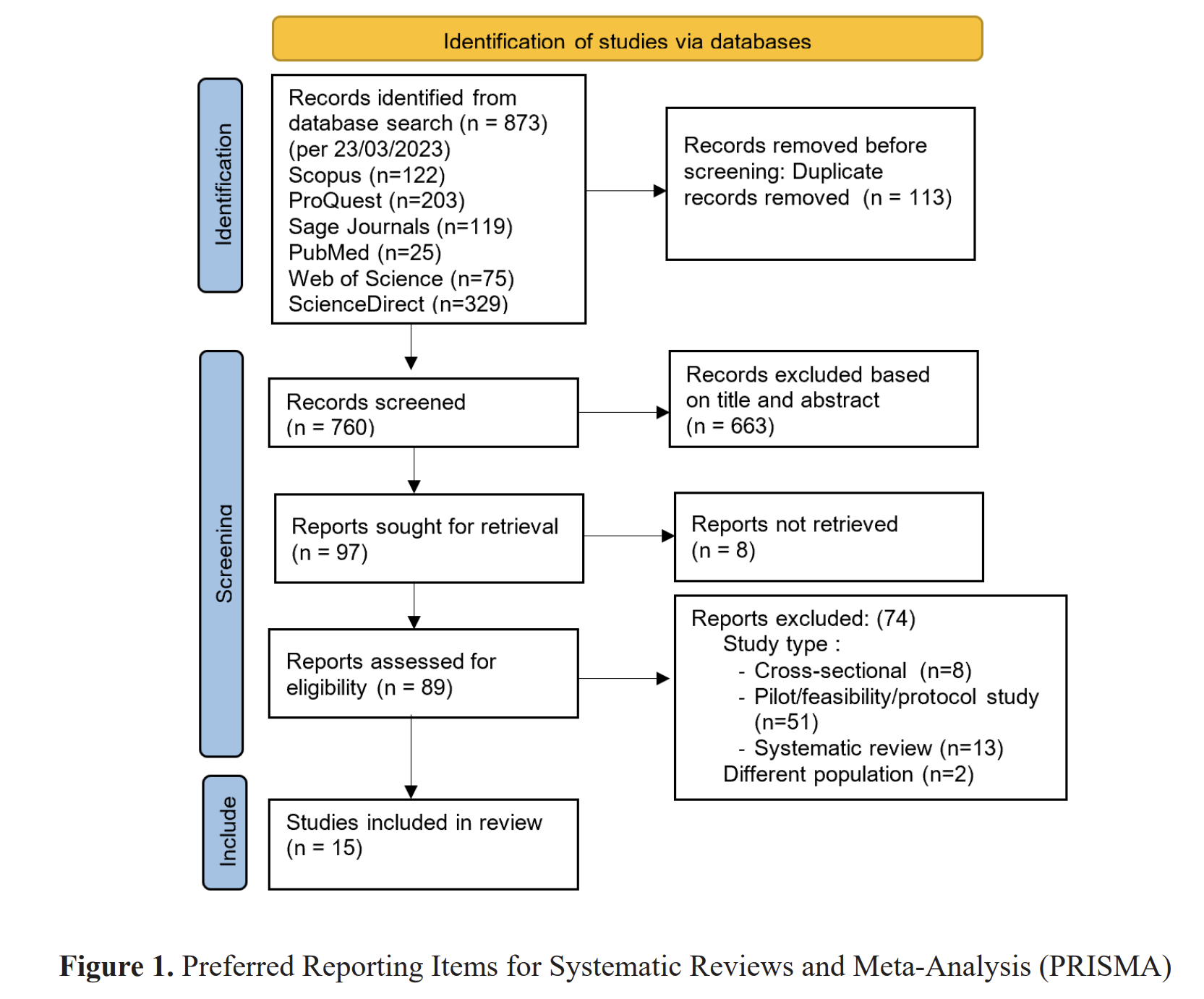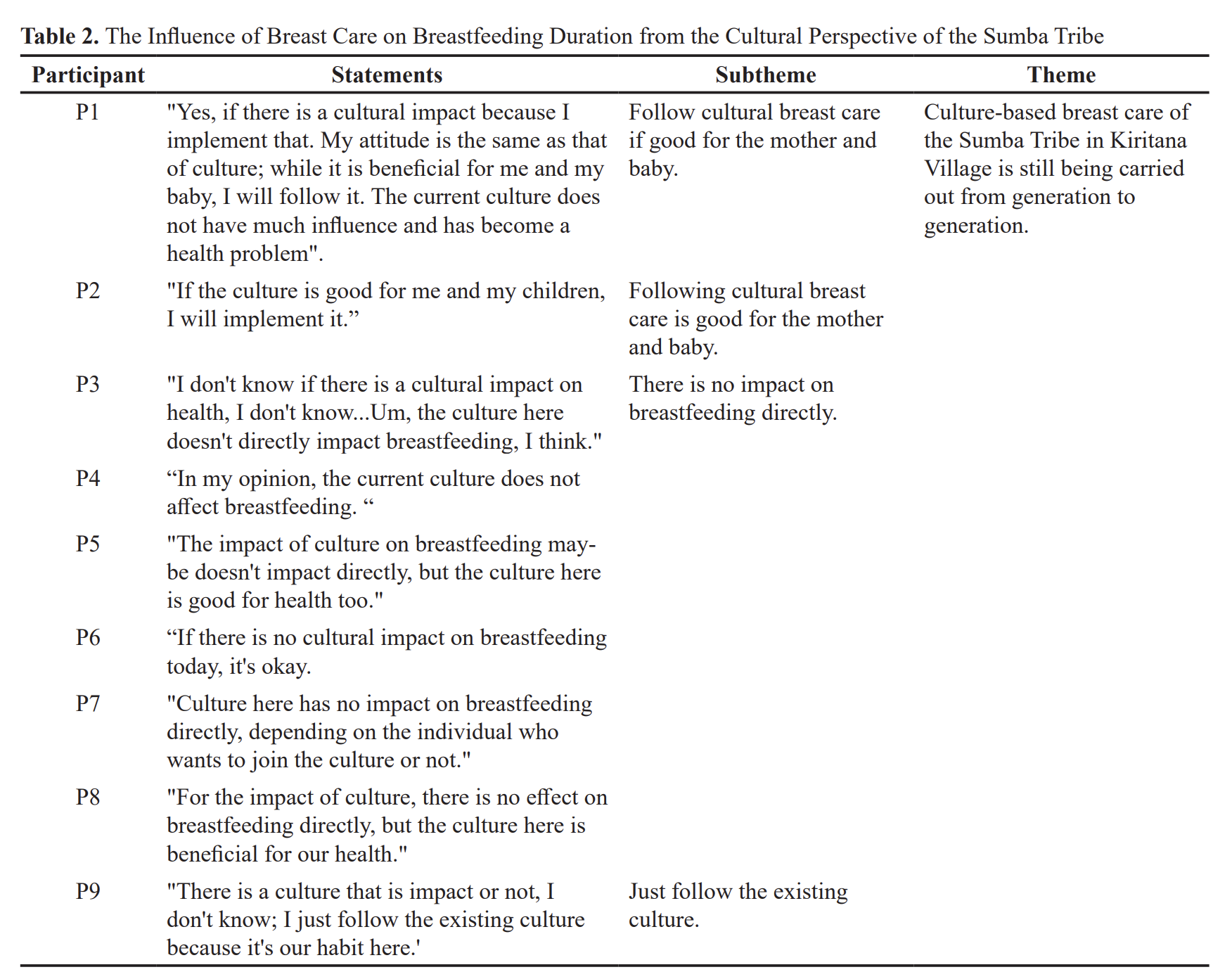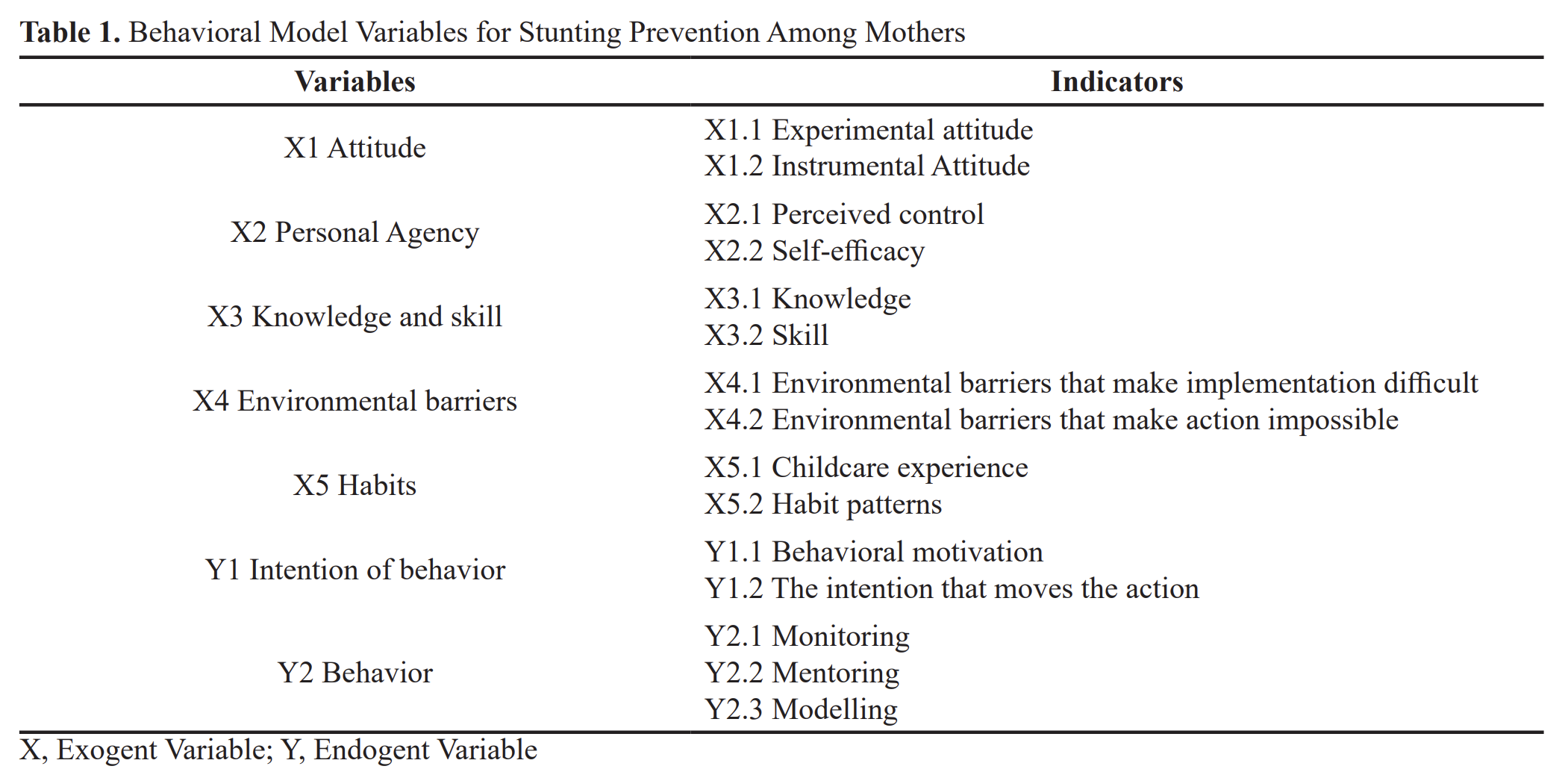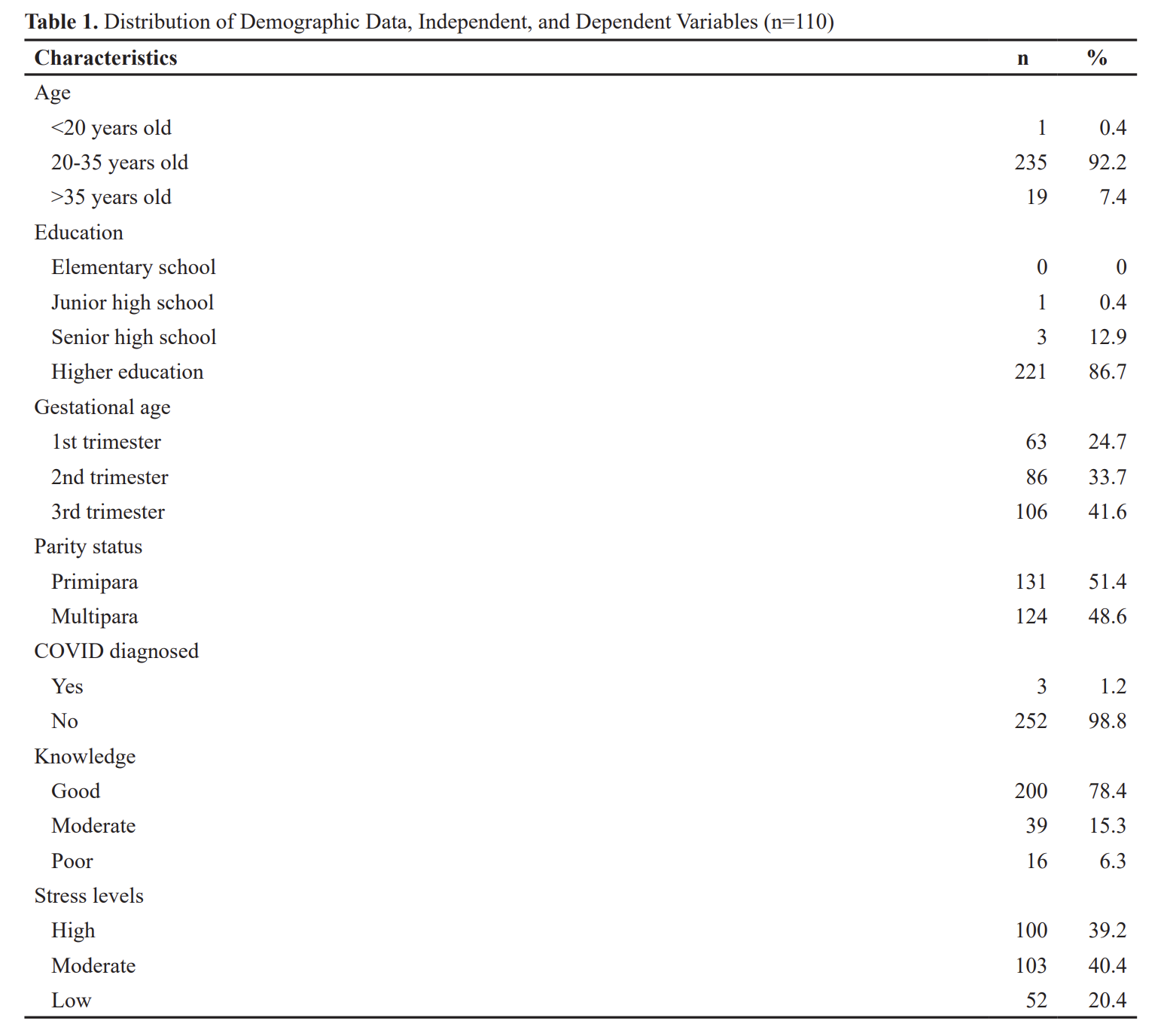Factors Associated with the Resilience of Breast Cancer Patients undergoing Chemotherapy
Downloads
Introduction: The management of chemotherapy in breast cancer requires a long time and cause miscellaneous of side effects. High resilience is needed by breast cancer patients to undergo chemotherapy regularly. This study aimed to analyze factors associated with the resilience of breast cancer patients undergoing chemotherapy.
Methods: This study design was cross-sectional. From the total population of 122 breast cancer patients, a sample of 100 participants was selected using a purposive sampling technique. The independent variables were hardiness, education level, economic status, side effects of chemotherapy, family support, and anxiety. The dependent variable was resilience. The instruments of this study were Hardiness questionnaire, Chemothraphy-Symptom Assessment Scale (C-SAS), Family Support questionnaire, Zung-Self Rating Anxiety Scale (ZSRAS), and Connor-Davidson Resilience Scale (CD-RISC). The Spearmen's Rho was used for statistical analysis.
Results: Hardiness (p=0.000; r=0.310), Education Level (p=0.000; r=0.416), Economic Status (p=0.000; r=0.369), Side Effects of Chemotherapy (p=0.004; r=-0.283) and Family Support (p=0.000; r=0.579) have relation with the resilience. Anxiety has no relation with the resilience (p=0.23; r=0.121).
Conclusion: The side effects management of chemotherapy and family support were necessary to increase the resilience of breast cancer patients undergoing chemotherapy. It is highly recommended to the next researchers to do some studies about factors associated with the side effects of chemotherapy and nursing intervention, which can reduce the side effects of chemotherapy itself.
Anggraini, M. (2017). 'Relationship of Compliance Undergo Chemotherapy with Quality of Life of Cervical Cancer Patients in Dr. Moewardi Surakarta'. Electronic Theses and Dissertations
Bahramil, M. (2018). 'Hardiness and Optimism in Women with Breast Cancer'. doi: 10.4103/ijnmr.IJNMR.
Budiman, A., Khambri, D. and Bachtiar, H. (2013). 'Affecting's factor to Medication Adherence of Patient With Tamoxifen After Surgery'. Jurnal FK Andalas 2(1), pp. 20–24.
Cordero, E.D., Dimsdale, J.E., & Navarro, A.M. (2015). 'Feeling "Pooped'' and ‘Run down?': Fatigue experiencesin latino Cancer Patients'. Journal off Applied Biobehavioral Research.
Deshields, T, Heiland F, Kracen, Amanda C, Dua, Priya (2016). 'Resilience in adults with cancer : development of a conceptual model'. pp. 11–18.
Dimitrоvska, G. R., Stefanovski Petar., Smichkoska, Snezhana, Raleva, Marija., Dejanova, &Beti. (2015) ‘Depression and Resilience in Breast Cancer Patients', 3(4), pp. 661–665.
Dubey, C., J. Maria, C. Hoeppli (2015a). ‘European Journal of Oncology Nursing Resilience and unmet supportive care needs in patients with cancer during early treatment : A descriptive study', European Journal of Oncology Nursing. Elsevier Ltd, pp. 1–7. doi: 10.1016/j.ejon.2015.03.004
Dubey, C., J., Maria, C & Hoeppli (2015b). ‘European Journal of Oncology Nursing Resilience and unmet supportive care needs in patients with cancer during early treatment : A descriptive study', European Journal of Oncology Nursing. Elsevier Ltd, 19(5), pp. 582–588. doi: 10.1016/j.ejon.2015.03.004
Effendy, C. Vissers, K. & Osse, Bart. (2014). ‘"Comparison of Problems and Unmet Needs of Patients with Advanced Cancer in a European Country and an Asian Country”', Pain Practice, 15(5), pp. 433–440.doi: 10.1111/papr.12196.
Ernawati, A. (2016). Effect Of The Power Of Dhuha On Anxiety Reduction In Breast cancer Patients At Integrated Oncology Clinic, Dr.Soetomo Hospital, Surabaya.Universitas Airlangga.
Friedman.M (2010). Buku Ajar Keperawatan Keluarga: Riset Teori dan Praktek.5th edn. Jakarta: EGC
Gerber, L. H. (2017) ‘Cancer-Related Fatigue', Physical Medicine and Rehabilitation Clinics of North America. Elsevier Inc, 28(1), pp. 65–88. doi: 10.1016/j.pmr.2016.08.004.
Halimatussakdiah & Junardi. (2017).Risk Factors For Chemotherapy Compliance In Breast Cancer Patients, Jurnal Kesehatan, pp. 415–424.
Kementerian Kesehatan RI. (2014). Handbook on Socialization National Health Insurance (JKN) in the National Social Security System. Jakarta: Ministry of Health of the Republic of Indonesia
Kementerian Kesehatan RI. (2018). Main Results Basic health research 2018. Jakarta: Ministry of Health of the Republic of Indonesia
Kirana, L. A. (2016). Social Support and Resilience in Breast Cancer Patients (Case Study of Breast Cancer Patients On Chemotherapy). PSIKOBORNEO. 4(4), pp. 829–837.
Kovacevia, A, Dragojevic-Simic V, Rancic N, Jurisevic M, J. M. (2015) End-Of Life Cost of Medical Care for Advancedstage Cancer Patiens. US National Library of Health.
Kusumaningrum, T., Pradanie,R., Yunitasari,Esti., Kinanti, Sih. (2016). 'The Role of Family and Quality of Life in Patients with Cervical Cancer'. Jurnal Ners, 11(1), pp. 112–117
Levkovich et al (2017) ‘The experience of Fatigue in Breast Cancer Patients 1-12 Month Post Chemotherapy: A Qualitative study.', Behavioral Medicine.
Lusiatun., Mudigdo,A. & Murti,B. (2016). The Effect of Self-Efficacy, Family Support, and Socio-Economic Factors on the Quality of Life of Patients with Breast Cancer at Dr. Moewardi Hospital, Surakarta
Matzka, M., H. Mayer., Sabine, K., Katherina Dubey., Patrick, Jhan. (2016) ‘Relationship between Resilience , Psychological Distress and Physical Activity in Cancer Patients : A Cross-Sectional Observation Study', 2(163), pp. 1–13. doi: 10.1371/journal.pone.0154496.
Mayangsari, W. I., Sumara, R. & Yunitasari, E. (2019) ‘The Relationship between Family Support and Self-esteem among Cervical Cancer Patients Undergoing Chemotherapy', pp. 6–10.
Min, J. et al. (2013) ‘Psychological resilience contributes to low emotional distress in cancer patients', pp. 2469–2476. doi: 10.1007/s00520-013-1807-6.
Misgiyanto & Susilawati, D. (2014). The Correlation between family Support With The Level Of Anxiety Of Patients With Palliative Cervical Cancer. 5 (Anggrek I), pp.1–15. https://doi.org/10.22219/jk.v5i1.1855
Mudigdo, A. and Murti, B. (2016) ‘The Effect of Self-Efficacy, Family Support , and Socio-Economic Factors on the Quality of Life of Patients with Breast Cancer at Dr. Moewardi Hospital, Surakarta', 1(3), pp. 182–194.
Nuwa, M. (2018). 'The Influence of Age and Coping Mechanism on The Resilience of Cancer Patients Undergoing Chemotherapy'. The 9th International Nursing Conference 2018.pp.28-36
Nursalam (2016) 'Metodologi penelitian Ilmu keperawatan: Pendekatan kritis.' 4th edn. Jakarta: Salemba Medika.
Perdana,A., Ichsan,B.& Usdiana,D. (2013). 'Relationship of Knowledge Levels of DM with Sugar Control in Type II Patients at RSU PKU Muhammadiyah Surakarta', Biomedika, 5 (2). https://doi.org/10.23917/biomedika.v5i2.265
Peterson, S.J & Bredow, T. (2013). 'Middle Range Theories: application to nursing research. 3rd edn. Edited by L. W. & Wilkins. Philadelphia New York: Wolters Kluwer Health
Priasmoro.(2016). 'Effect of Personal Ability on Resilience (Study of Parents Who Have Children with Down Syndrome'. Health Journal Hesti Wira Sakti, pp. 7–11.
Sagone, Elisabetta & De Caroli, M. (2014). 'Relationship Between Psychological Well-Being and Resilience in Middle and Late Adolescents', Social and Behavioral Sciences.
Sana., Begum,N., Mutha,S., Marda,S.& Bakshi, Vasudha. (2016) ‘Assessment of Psychological impact of Breast cancer in Woman.', International Journal of Applied Pharmaceutical Sciences and Research, pp. 119–126.
Sari (2014). 'Relationship between Social Support and Hardiness in Adolescents Living in Orphanages'. Universitas Islam Negeri Sultan Sarif Kasim. Riau
Setiawan, S. D. (2015). 'The Effect Of Chemotherapy In Cancer Patient'., pp. 94–99. Universitas Sebelas Maret Surakarta.
Setyaningsih (2011). 'Relationship between family emotional support and resilience with cancer patient's anxiety on chemotherapy in RSUD dr. Moewardi Surakarta'. Universitas Sebelas Maret Surakarta
Somasundaram, R. O. and Devamani, K. A. (2019) ‘A Comparative Study on Resilience, Perceived Social Support and Hopelessness Among Cancer Patients Treated with Curative and Palliative Care', pp. 135–140. doi: 10.4103/0973-1075.179606.
Sudiyanti, E. (2017). 'Relationship of Family Support Against Coping Mechanisms in Cervical Cancer Patients Undergoing Chemotherapy at RSUD Dr. Moewardi'. Universitas Muhammadiyah Surakarta
Sugeng. (2016). Relationship Between Resilience With Anxiety Levels Of Cancer Patients VII, Jurnal Penelitian Kesehatan Suara Forikes. pp. 149–155.
Sugo, M. (2019). Coping strategy Factors In Cancer Patients Undergoing Chemotherapy. Pediomaternal Nursing Journal, 5(1) pp 99-108
WHO (2017). Available at: http://www.who.int/mediacentre/factsheets/fs297/en/ [Acessed June 11,2019].
WHO (2019). Available at: https://www.who.int/cancer/prevention/diagnosis-screening/breast-cancer/en/#.XOiuz8LMP-s.email. [Acessed June 11,2019].
Yunitasari, E. (2016). The Development Of Coping-Roy's Adaptation Nursing Care Model To Increase The Resiliency Of Post Radical Hysterectomy + BSO Cervical cancer Patients Who Received Chemotherapy. Universitas Airlangga Surabaya.
Copyright (c) 2020 Ariyani Wisudawati Nira, Mira Triharini, Aria Aulia Nastiti

This work is licensed under a Creative Commons Attribution 4.0 International License.
1. The journal allows the author to hold the copyright of the article without restrictions.
2. The journal allows the author(s) to retain publishing rights without restrictions.
3. The legal formal aspect of journal publication accessibility refers to Creative Commons Attribution (CC BY).





















